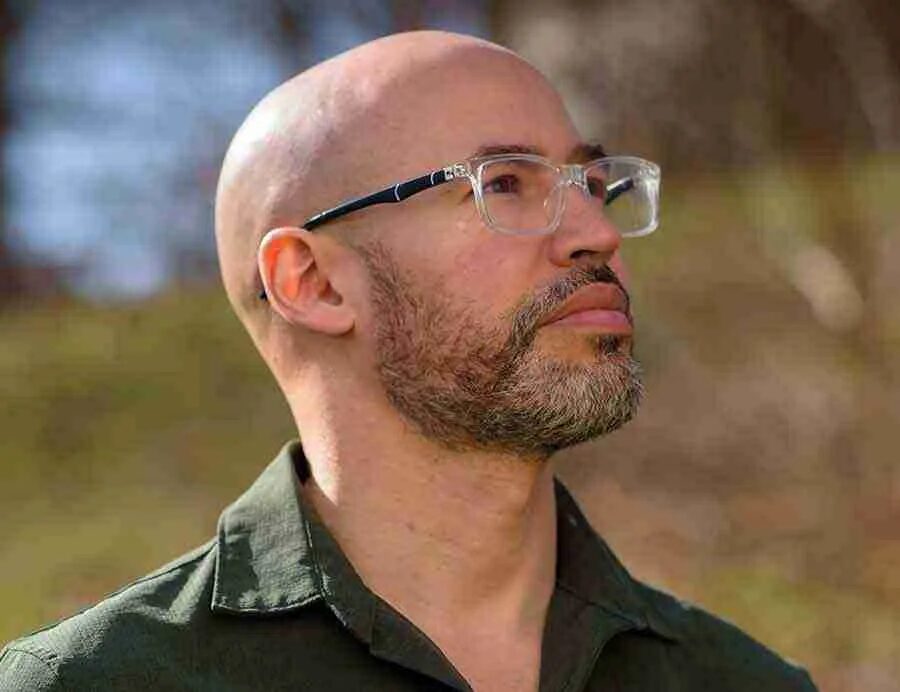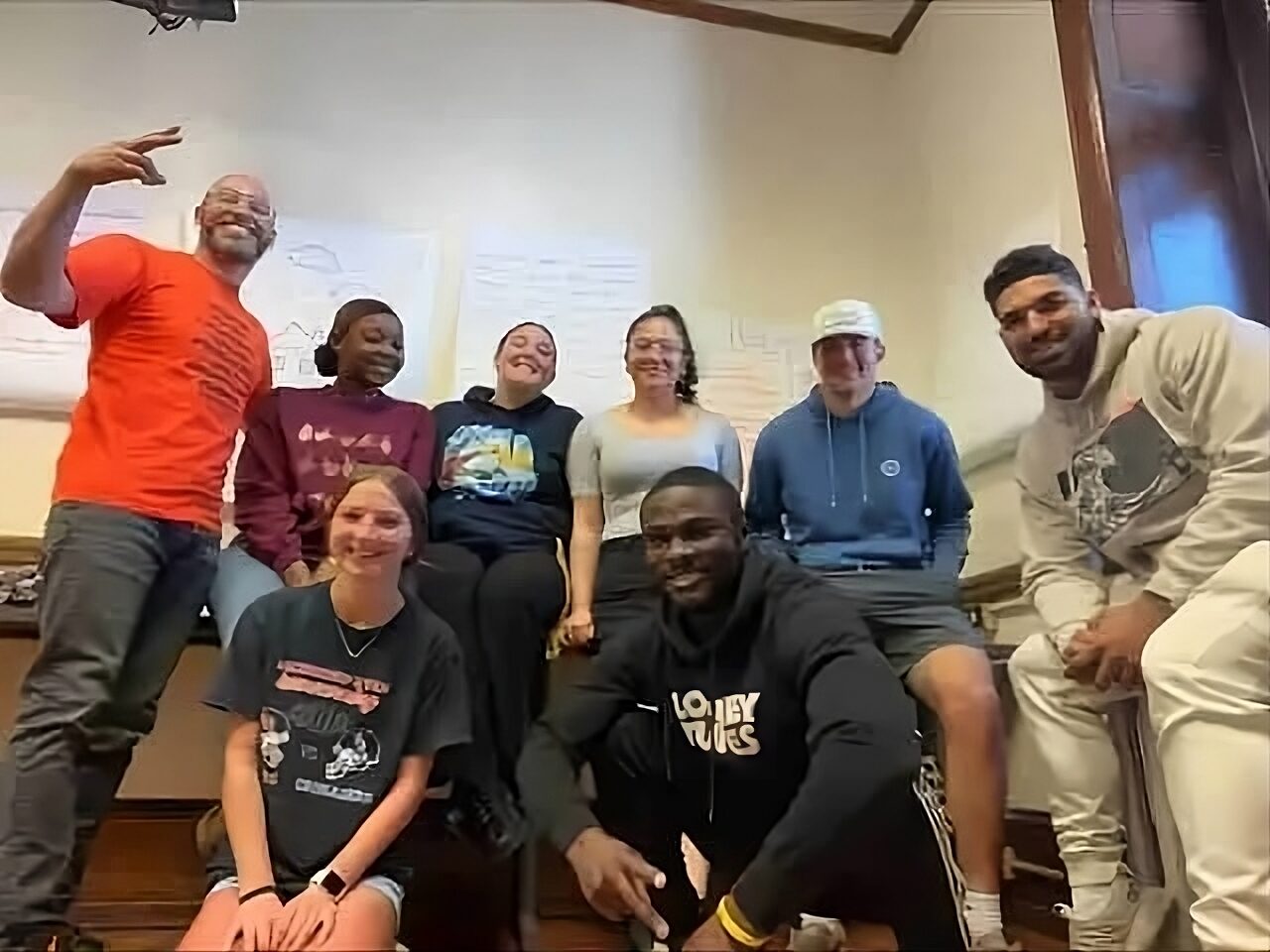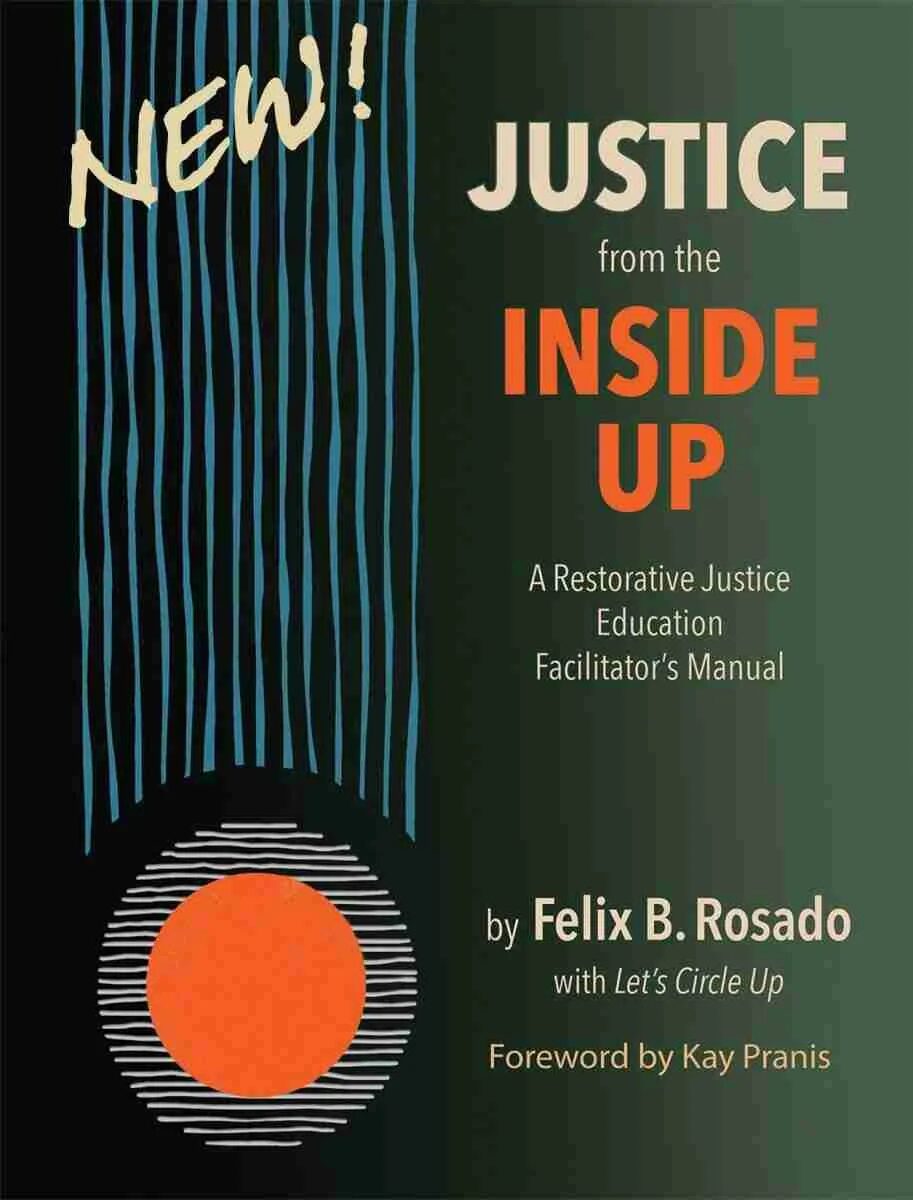This author profile was originally published by Chestnut Hill College
The nonprofit, Living Justice Press, just released “Justice from the Inside Up — A Restorative Justice Education Facilitator’s Manual,“ by Felix B. Rosado. This book makes learning about restorative justice in community available both to those still inside prison and to the public: schools, colleges, nonprofits, families, communities, and churches.
![]()
 “If you wanna learn more about yourself and what it means to be human in a world laden with harm, restorative justice is not only a philosophy of practices, but a lifestyle that applies everywhere. This might seem like something that is about ‘criminal justice,’ but in reality, it’s just a way of life we should all learn about and practice.”
“If you wanna learn more about yourself and what it means to be human in a world laden with harm, restorative justice is not only a philosophy of practices, but a lifestyle that applies everywhere. This might seem like something that is about ‘criminal justice,’ but in reality, it’s just a way of life we should all learn about and practice.”
— Felix B. Rosado, author of Justice from the Inside Up
![]()
Philadelphia, Penn. — Felix Rosado recently joined the Chestnut Hill College community as an inspiring and unconventional adjunct professor. Just two years ago he was serving a sentence of death by incarceration — more commonly known as life without parole. He was freed via governor clemency after 27 years.
Rosado said that while incarcerated, he rediscovered his Catholic faith and was introduced to the concept of restorative justice. He decided to make amends for his crime by educating and serving others. Rosado finished teaching two courses this spring semester on restorative justice under the Justice Studies Department.
“I was sentenced to life without parole at age 18. I’m proof that redemption is possible.”
Lauren Barrow Ph.D., Chair, Center for Education, Advocacy & Social Justice, and Associate Professor of Criminal Justice, first met Rosado at a training 10 years ago through the Inside-Out Prison Exchange Program. Inside-Out facilitates dialogue and education across profound social differences. They offer courses inside prison involving students from a higher education setting and incarcerated students.
“I was first introduced to the visceral and emotional power of restorative justice when I started at Chestnut Hill College (CHC) in 2011. One year later, during my week-long training for Inside-Out at Graterford State Prison, I met Rosado the first time,” said Barrow.
So, when he reached out to me last semester [in 2023] regarding the departmental search for a new restorative justice instructor, it was an easy ‘Yes!’ to bringing him on board.”
“I had no doubt Rosado would impact CHC students in all the right ways, and he has not disappointed. He and his class have encouraged and empowered our students to envision themselves as real changemakers,” said Barrow.
Rosado’s philosophy and pedagogy were shaped and created through his experience with Let’s Circle Up inside at Graterford State Prison (now replaced by SCI Phoenix). Let’s Circle Up is a group of incarcerated men who found education about restorative justice to be a restorative practice, because it proved so transformative for so many. This is the first time Rosado has taken his experiential-learning workshop to a college classroom.
Let’s Circle Up focuses on the invaluable worth in the lived experience of everyone who sits in their circles to talk about restorative justice and what it can look like.

Courtesy Chestnut Hill College
Felix Rosado with his class at Chestnut Hill College.
“It’s been a joy and a gift to teach these courses at CHC. This is the first time I’ve adapted the workshops I’ve done to include readings and essays that stretch out for 14-week semester,” says Rosado.
Rosado emphasizes his alignment with the College’s core values — especially pertaining to the pursuit of just relationships — with his values of restorative justice.
“Both stress the interconnectedness of all people and the importance of repairing harm in relationships when it occurs. Additionally, these values advocate for the proactive building of positive relationships to prevent harm,” says Rosado.
With those core values in mind, Rosado explained:
He uses a transformative educational approach focused on building community and prioritizing relationships … creating a space where students feel comfortable being open and vulnerable.
This facilitates discussions rather than lecturing. This approach, influenced by “Pedagogy of the Oppressed,” by Paolo Friere, aims to draw out students’ existing knowledge and wisdom rather than simply imparting information.
Student experiences
Sarah Somers ‘24 noted that her experience in class made her closer to her peers. “Professor Felix’s class helped me build connections with peers who I have had other classes with since my freshman year of college.
“It wasn’t until his class I was able to get to know my peers on a deeper level,” said Somers.
“We were able to open up with one another without any judgment. Professor Felix created a space where everyone felt comfortable to share their stories.”
Jonathan Oister ‘24 was impressed with Rosado’s class. “This class has had a huge influence on my career aspirations. While working in a juvenile detention facility, this class has been a reliable framework in assisting my approach with the residents. Working at a detention facility can be extremely difficult.
“This class has allowed me to implement the community building and community circles into the schedule for juvenile detention residents,” said Oister.
“It has encouraged me to take an approach to guide them in reflecting on their actions and decisions throughout their time at the facility. Not only has this class assisted me in implementing the curriculum but it has educated me about a solution I can utilize when experiencing difficult situations in my career field.”
Restorative justice is Rosada’s passion
Outside of teaching, Rosado works as the program manager of Healing Futures, a youth restorative justice diversion program at YASP (Youth Art and Self-Empowerment Project).
Healing Futures receives referrals from the Philadelphia District Attorney’s Office of young people who have been arrested for various crimes and facilitates restorative justice processes that bring together the harmed parties and those who caused harm.
Through weeks of preparation, both sides are guided to understand each other’s perspectives, leading to crafting apology letters and developing restorative action plans. This process results in the dismissal of charges.
For Rosado, his teaching at and his work at YASP are both a natural extension of his experiences.
The takeaways
“My biggest takeaway from this class is that justice looks different for everyone. Justice doesn’t have to look like what we traditionally see it as, or I should say we’re conditioned to see justice as. Professor Felix’s class taught me that healing harm shouldn’t be one-sided. Healing takes all those involved in harm to reconcile and try to repair that relationship as best as possible,” said Somers.
[Related Report: Effective alternatives to youth incarceration]
And as Rosado said, “If you wanna learn more about yourself and what it means to be human in a world laden with harm, restorative justice is not only a philosophy of practices, but a lifestyle that applies everywhere. This might seem like something that is about ‘criminal justice,’ but in reality, it’s just a way of life we should all learn about and practice.”
***



 The publisher of
The publisher of 























